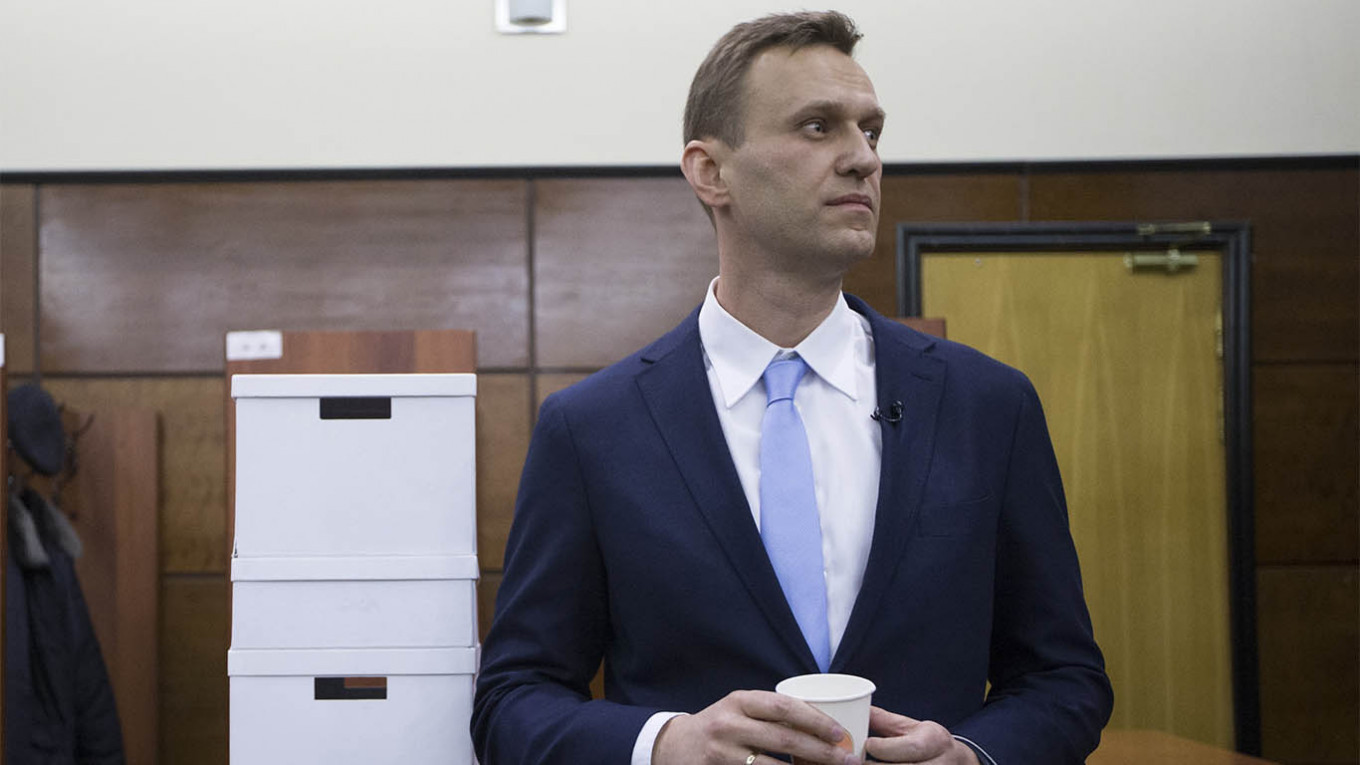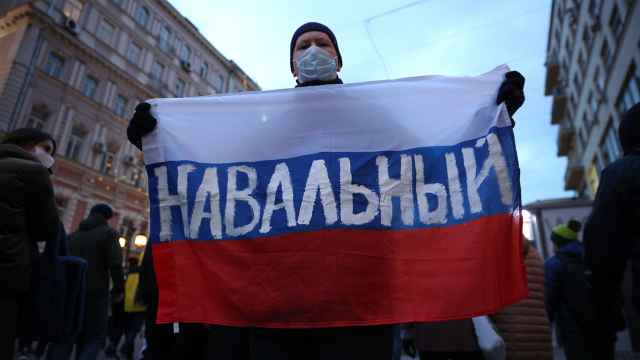I still don’t know who tried to murder Alexei Navalny. Unfortunately, despite its new sanctions on six Russian officials and the State Research Institute for Organic Chemistry and Technology (GosNIIOKhT), I suspect the European Union doesn’t either.
That didn’t stop them, though, and while I absolutely understand and sympathize with the need to act, I cannot help but feel this pressure can sometimes force governments to do something soon, rather than do something smart.
Ever since Navalny collapsed with nerve agent poisoning on 20 Aug., the question has been who was behind the attack.
The Kremlin? Some corrupt official whose embezzlement was being exposed? A grandee who could assume Vladimir Putin would approve, or at least accept? Although the subsequent revelation that a new variety of the now-infamous novichok nerve poison was used made a direct state connection more plausible, we still don’t seem to know. In a way it is irrelevant.
The Kremlin has rolled out a full-spectrum campaign to deny, deflect and disinform, signaling that even if — if — it wasn’t behind the attack, it certainly is blessing it and standing behind whoever was involved.
Of course, it may be that European intelligence agencies have already unraveled the details of the plot.
If that is the case, it would be understandable that they would not necessarily say so at this time, unwilling to reveal their access and jeopardize their sources.
To be honest, though, were that the case, I would have expected some kind of hints or rumors in this age of spin and leaks. An unnamed source complacently affirming that there are “strong grounds” for the specific targeting of sanctions, for example, or a national intelligence service’s usual media cheerleaders hinting that it was they, and not the other agencies, that brought home the goods.
The usual suspects
As is, though, when one looks at the actual targets of the sanctions, the phrase ‘’round up the usual suspects” does come to mind.
They are Alexander Bortnikov, head of the Federal Security Service (FSB); Sergei Kiriyenko, first deputy head of the Presidential Administration and Andrei Yarin, head of its domestic policy directorate; two deputy defense ministers, Alexei Krivoruchko and Pavel Popov; and Sergei Menyaylo, presidential representative to the Siberian Federal District.
In every case, the official justification is simply that it is “reasonable to conclude” that they had to have consented to the attack.
Navalny was under constant FSB scrutiny (which the agency itself has admitted), so Bortnikov bears responsibility. By the same token, the Presidential Administration must have known, hence Kiriyenko’s and Yarin’s names on the list, along with Menyaylo’s. Novichok stocks ought to have been destroyed, and so Popov (whose remit covers military research) and Krivoruchko (responsible for armaments) are considered to share the blame with GosNIIOKhT, for not ensuring they were all gone.
Maybe so, and I am sure people like Bortnikov and Kiriyenko don’t need me standing up for them. They are all active, enthusiastic members of a regime which bears at very least the moral responsibility for Navalny’s poisoning. I am sure most at the very least know the full story, by now if not beforehand.
Yet for all that, this does look like a pretty weak basis for sanctions. Remaining covert poison laboratories actually appear to be under FSB and Foreign Intelligence Service (SVR) control, not the military. Yes, this puts Bortnikov in the frame, and given that military intelligence (GU) operatives were issued novichok for their attack on Sergei Skripal in 2018, the defense ministry must presumably have been aware of this on some level, but then why target GosNIIOKhT (which likely had no jurisdiction) and why not target the head of the GU, Igor Kostyukov? If Kiriyenko and Yarin were in the know, would they not also have told their boss, Anton Vaino?
In short, while it may be that all these individuals do share direct or indirect responsibility, as initiators, accomplices or simply retrospective sympathizers, this is hardly a full cast of the guilty. If anything, it looks like an admission of ignorance: targeting people on the basis of a presumption of guilt. In the process, people who likely were more directly involved are almost certainly omitted. The lesson is thus that you can still get away with (attempted) murder, which is presumably exactly the opposite of what the EU hoped.
The usual gestures
In any case, a bigger question is whether these sanctions are anything more than a passing and symbolic gesture, made as a substitute to tougher, more ambitious, more imaginative measures that might have taken more time and political will to prepare.
Personal sanctions absolutely have a place in modern diplomacy. They are especially useful in excluding individuals who may cause direct mischief — and their often-questionable money, which tends to be what makes them problematic. For individuals with particular assets or interests in the West, this can be genuinely irksome, whether preventing them from enjoying their mansions and penthouses or — the most vicious blow of all — keeping them from a beloved dog.
There is also a role for the gesture in international politics, especially when directed at a regime which clearly does care about its image, its claim to being a serious world power.
However, they are also a wasting asset. Bortnikov, after all, has already been on the EU sanctions list since 2014.
The more they are used on a particular state, the less their impact. Furthermore, elites such as Russia’s are increasingly ‘nationalized.’ Those close to the Kremlin are not only being encouraged to bring their money home and cut their links with the West (not least through banning dual citizenship for top officials), they are themselves seeking to minimize their vulnerability to sanctions.
Besides which, there is no evidence they actually influence Russian policy. Putin has ensured that some of his closest cronies have been recompensed for losses from sanctions in the past, but overall simply seems to regard it as part of the price of political war with the West. Officials get to embezzle as a perk of their job; if they get caught at home or suffer economic losses from sanctions at home, that’s their problem.
None of this means that the targets of these sanctions are poor, misunderstood victims. For some, their connection with the attack seems more plausible than others, but all are members of a regime which does poison, shoot and otherwise target its enemies with impunity. This measure will no doubt irk the Kremlin, and we can expect histrionic complaints, heavy-handed sarcasm and maybe more direct countermeasures in the hours and weeks to come.
It won’t hurt the Kremlin, though, and likely won’t affect its future actions. It would be a shame if a desire to do something — anything — now prevented continued thought about further measures which might actually make an impression on a regime which has come to take these kind of sanctions in its stride.
A Message from The Moscow Times:
Dear readers,
We are facing unprecedented challenges. Russia's Prosecutor General's Office has designated The Moscow Times as an "undesirable" organization, criminalizing our work and putting our staff at risk of prosecution. This follows our earlier unjust labeling as a "foreign agent."
These actions are direct attempts to silence independent journalism in Russia. The authorities claim our work "discredits the decisions of the Russian leadership." We see things differently: we strive to provide accurate, unbiased reporting on Russia.
We, the journalists of The Moscow Times, refuse to be silenced. But to continue our work, we need your help.
Your support, no matter how small, makes a world of difference. If you can, please support us monthly starting from just $2. It's quick to set up, and every contribution makes a significant impact.
By supporting The Moscow Times, you're defending open, independent journalism in the face of repression. Thank you for standing with us.
Remind me later.








